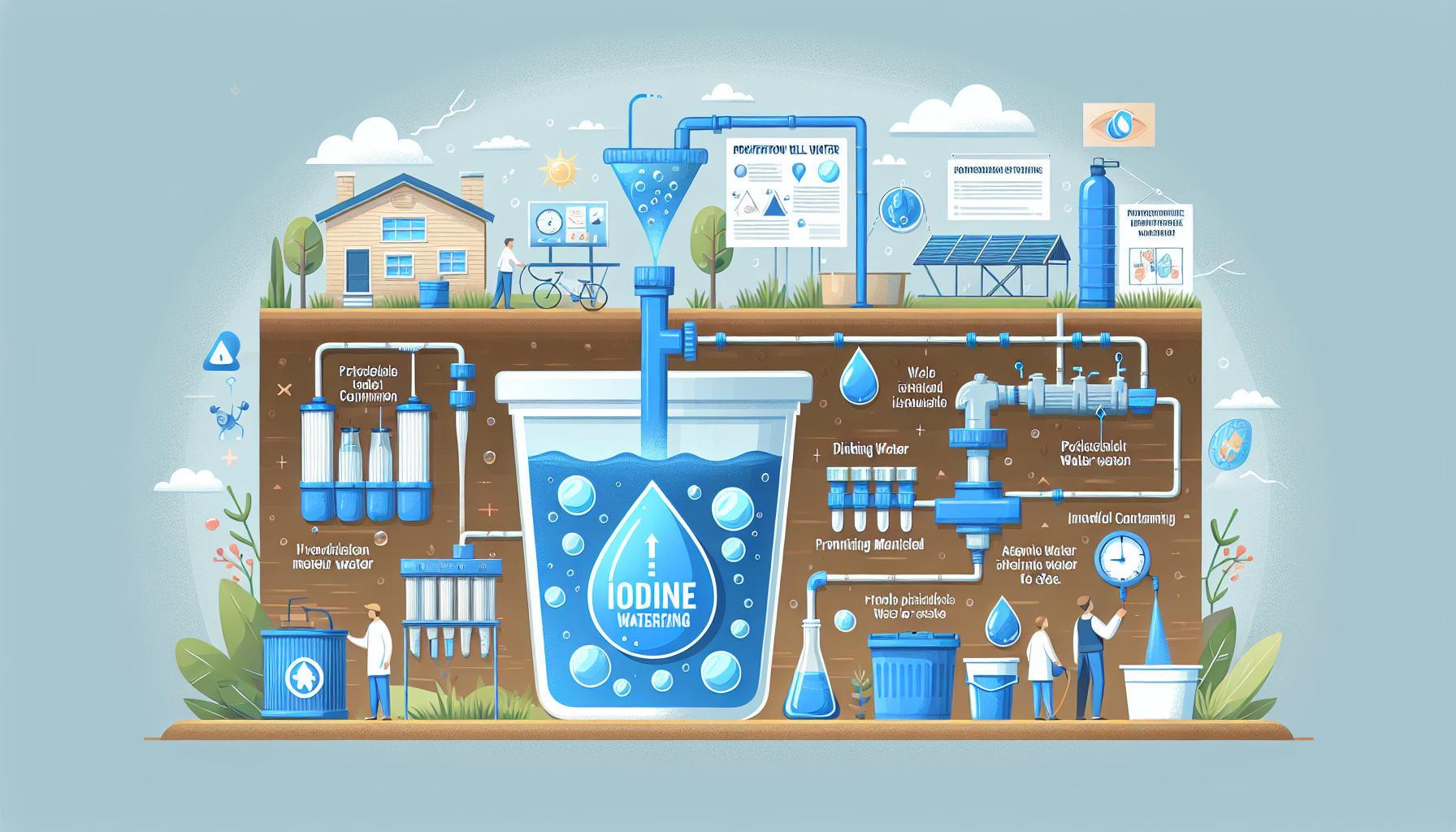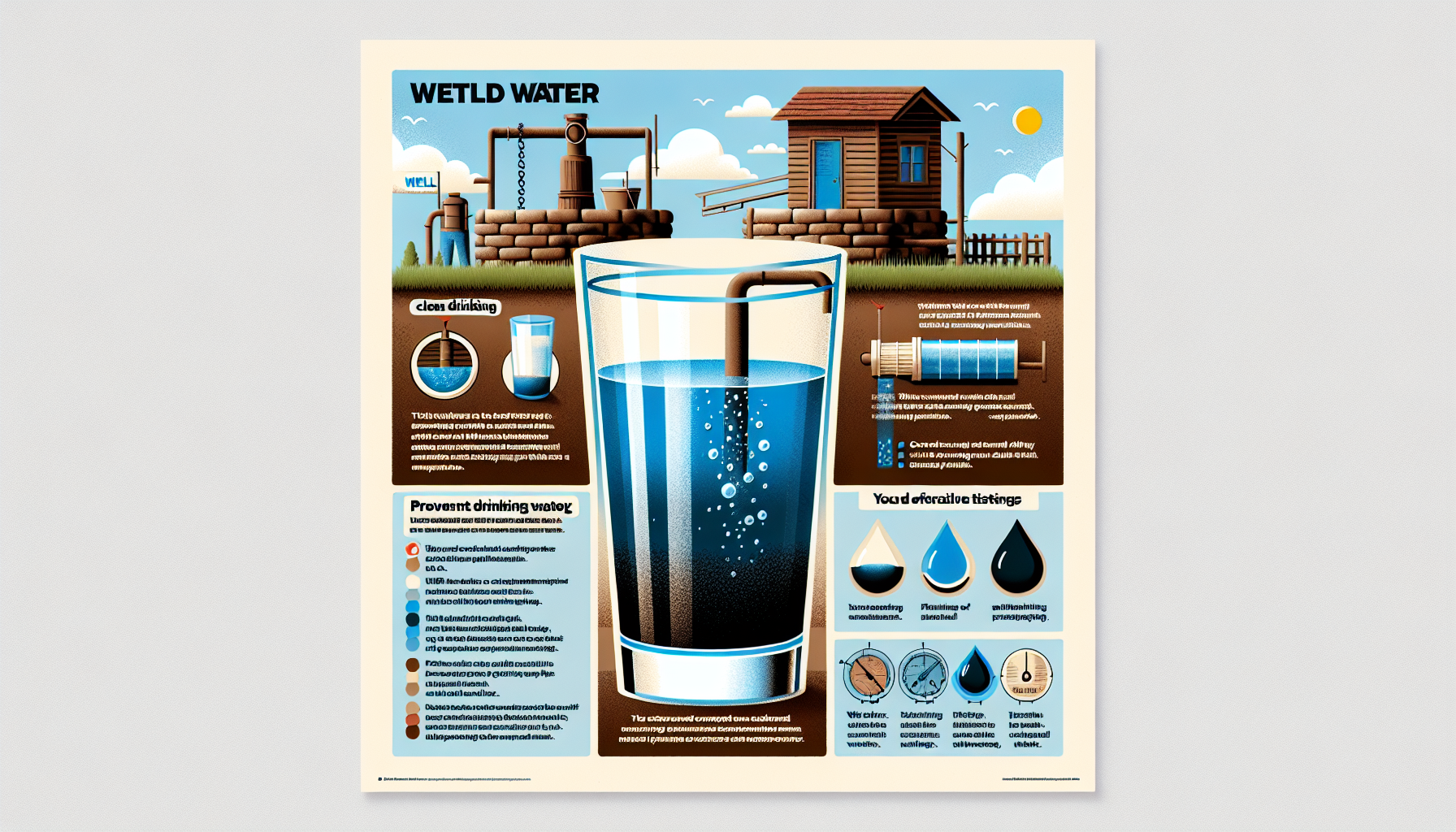If you rely on well water for your household needs, you may be concerned about the potential contamination of iodine. Iodine is often used to disinfect water, but excessive amounts can be harmful to your health. In this article, we will explore different methods and precautions to help you prevent well water contamination by iodine. By following these guidelines, you can ensure the safety of your well water and maintain a healthy supply for you and your family.
Understanding Well Water Contamination
Well water contamination refers to the presence of harmful substances or contaminants in water sourced from a well. One common source of contamination is iodine. Iodine contamination occurs when excessive levels of iodine are present in the well water, posing risks to human health. It is important to understand the common sources of iodine contamination, the effects on health, and the preventive measures that can be taken to ensure the safety of well water.

Common Sources of Iodine Contamination
Iodine contamination in well water can originate from various sources. One of the primary sources is natural geological deposits. Certain geological formations contain high levels of iodine, which can seep into the groundwater and contaminate wells. Moreover, anthropogenic activities such as industrial processes, mining, and agricultural practices can introduce iodine into the environment and subsequently contaminate well water. It is crucial to be aware of these common sources to effectively prevent iodine contamination.

Effects of Iodine Contamination on Health
Excessive iodine levels in well water can have detrimental effects on human health. Long-term exposure to high levels of iodine can lead to thyroid disorders, including goiter and hypothyroidism. These conditions can cause a range of symptoms, such as fatigue, weight gain, brittle nails, and difficulty concentrating. Prolonged exposure to iodine contamination may also increase the risk of thyroid cancer. Therefore, it is essential to prioritize the prevention of iodine contamination to safeguard the health and well-being of individuals relying on well water as their primary source of drinking water.

Importance of Preventing Iodine Contamination
Preventing iodine contamination is of utmost importance to ensure the safety and quality of well water. By implementing preventive measures, individuals can reduce the risk of health complications associated with excessive iodine exposure. Moreover, preventing iodine contamination helps maintain the purity and taste of well water, making it more appealing for consumption. By taking proactive steps to prevent iodine contamination, you can protect your health and promote the overall well-being of your household.

Testing for Iodine Contamination
To determine if your well water is contaminated with iodine, regular testing is necessary. Testing can be performed by certified laboratories or through home water testing kits specifically designed for iodine. It is crucial to use reliable testing methods to obtain accurate results. By understanding the iodine levels in your well water, you can take appropriate actions to mitigate contamination risks and ensure the safety of your drinking water.
1. Regular Well Water Testing
Regular testing of well water is essential to monitor the iodine levels and detect any contamination promptly. It is recommended to conduct tests at least once a year, or as advised by local health authorities. You can contact a certified laboratory specializing in water testing to obtain sample collection kits and instructions. By establishing a routine testing schedule, you can stay informed about the quality of your well water and make informed decisions regarding its usage.
2. Identifying Potential Iodine Sources
To prevent iodine contamination, it is crucial to identify potential sources of iodine and take appropriate measures to mitigate their effects. Conduct a thorough assessment of your surroundings, considering nearby agricultural lands, industrial sites, and geological formations. By understanding the potential sources of iodine, you can implement preventive strategies such as proper waste management, employing sustainable agricultural practices, and minimizing exposure to iodine-rich geological formations.
3. Proper Well Construction and Maintenance
The construction and maintenance of a well play a significant role in preventing iodine contamination. Ensure that your well is constructed by certified professionals and follows the recommended guidelines. Regular inspection and maintenance of the well, including monitoring any signs of deterioration or damage, can help prevent iodine contamination. It is also essential to address any potential issues promptly, such as cracked casings or faulty seals, to maintain the integrity of the well and prevent contamination.
4. Ensuring Safe Well Location
The location of your well can impact its vulnerability to iodine contamination. When constructing a new well, it is crucial to choose a safe location that minimizes the risks of contamination. Avoid locating wells near potential sources of iodine contamination, such as agricultural fields or industrial facilities. Additionally, consider the geological characteristics of the area to ensure that the groundwater is not naturally high in iodine. By selecting a safe well location, you can significantly reduce the likelihood of iodine contamination.
5. Regular Monitoring and Maintenance
Once preventive measures have been implemented, it is important to maintain regular monitoring and maintenance of your well. Continuously monitor the iodine levels in your well water through regular testing. Additionally, pay attention to any changes in water quality, such as taste, odor, or discoloration, as these can indicate potential contamination. Regular maintenance, such as cleaning and disinfecting the well, can also contribute to preventing iodine contamination. By adopting a proactive approach and staying vigilant, you can ensure the ongoing safety of your well water.
In conclusion, understanding well water contamination by iodine is crucial for maintaining the safety and quality of your drinking water. By identifying potential sources of iodine, conducting regular testing, and implementing preventive measures, you can effectively prevent iodine contamination. Remember to prioritize regular monitoring, proper well construction and maintenance, and choose a safe location for your well. By taking these measures, you can enjoy clean and safe well water, free from iodine contamination, and safeguard your health and the well-being of your household.


